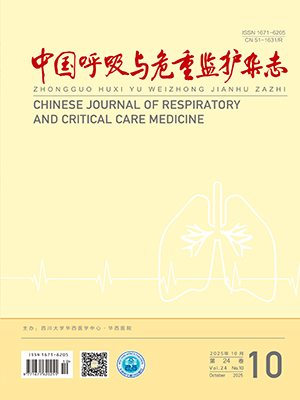Objective To systematically evaluate the effectiveness and safety of macrolides in the prevention of COPD exacerbation.
Methods The literatures concerning both randomized controlled trials ( RCTs ) and clinical control study of COPD were searched in PUBMED, EMBASE, Chinese National Knowledge Infrastructure ( CNKI) ,Wanfang, and Chinese Science and Technology Journal Full-text Database ( VIP) ( last updated in September 2012) . The quality assessment and data extraction for RCTs were conducted by two reviewers independently.Meta-analyses were conducted with the Cochrane Collaboration’s RevMan 4. 2 software.
Results In all trials, the results indicated that the frequency of acute exacerbation in the macrolide treatment group was decreased compared with the control group [ RR= 0. 63, 95% CI( 0. 50, 0. 79) ] . The frequency of acute exacerbation treated with macrolides was significantly decreased in Asians [ RR= 0. 58, 95% CI ( 0. 44, 0. 75) ] but not in Caucasians [ RR = 0. 79, 95% CI ( 0. 47, 1. 31) ] . The frequency of acute exacerbation treated with roxithromycin was significantly decreased compared with the control group [ RR=0. 54,95% CI( 0. 32, 0. 91) ] . In addition, the macrolides treatment had no side effects except for a few and mild gastrointestinal adverse effects.
Conclusion Macrolides may be an effective drug to prevent COPD exacerbation.
Citation: HE Jie,YANG Jiqiao,TONG Xiang,FU Xiaowei,LI Xiaoyan,FAN Hong. Effectiveness and Safety of Macrolides in Prevention of COPD Exacerbation: A Meta-analysis. Chinese Journal of Respiratory and Critical Care Medicine, 2013, 12(1): 12-18. doi: 10.7507 /1671 -6205.20130004 Copy
Copyright © the editorial department of Chinese Journal of Respiratory and Critical Care Medicine of West China Medical Publisher. All rights reserved




